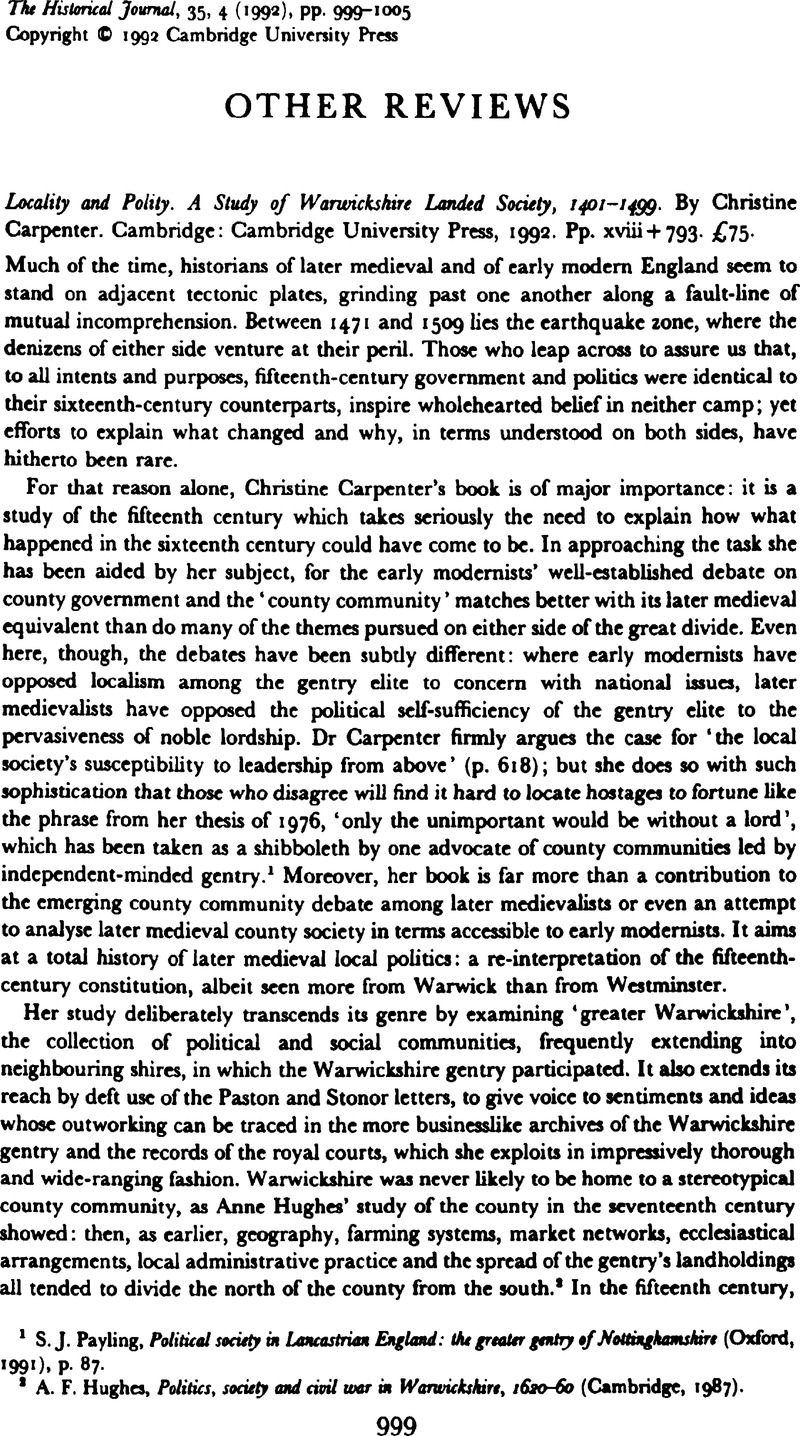Article contents
Locality and Polity. A Study of Warwickshire Landed Society, 1401-1499. By Christine Carpenter. Cambridge: Cambridge University Press, 1992. Pp. xviii+793. £75.
Published online by Cambridge University Press: 25 March 2010
Abstract

- Type
- Other Reviews
- Information
- Copyright
- Copyright © Cambridge University Press 1992
References
1 Payling, S. J., Political society in Lancastrian England: the greater gentry of Nottinghamshire (Oxford, 1991). P. 87CrossRefGoogle Scholar.
2 Hughes, A. F., Politics, society and civil war in Warwickshire, 1620-60 (Cambridge, 1987)CrossRefGoogle Scholar.
3 Bennett, M. J., Community, class and careerism: Cheshire and Lancashire society in the age of Sir Gawain and the Green Knight (Cambridge, 1983)CrossRefGoogle Scholar;Wright, S. M., The Derbyshire gentry in the fifteenth century (Derbyshire Record Society, VIII, 1983)Google Scholar; Payling, Political society.
4 Walker, S. K., The Lancastrian affinity, 1361-1399 (Oxford, 1990)Google Scholar.
5 Saul, N. E., Knights and esquires: the Gloucestershire gentry in the fourteenth cenhury (Oxford, 1981)Google Scholar;Saul, N. E., Scenes from provincial life: knightly families in Sussex, 1280-1400 (Oxford, 1986)Google Scholar.
6 Payling, , Political society, pp. 1–18, 105-8, 219Google Scholar.
7 Guy, J. A., ‘Wobey and the Tudor polity’, in Gunn, S. J. and Lindley, P. G. (eds.), Cardinal Wolsty: ehtrch, state and art (Cambridge, 1991), pp. 65–73Google Scholar;Robertson, M. L., ‘“The art of the possible”: Thomas Cromwell's management of West Country government’, Histerital Journal, XXXII (1989), 793–816CrossRefGoogle Scholar.
- 2
- Cited by


